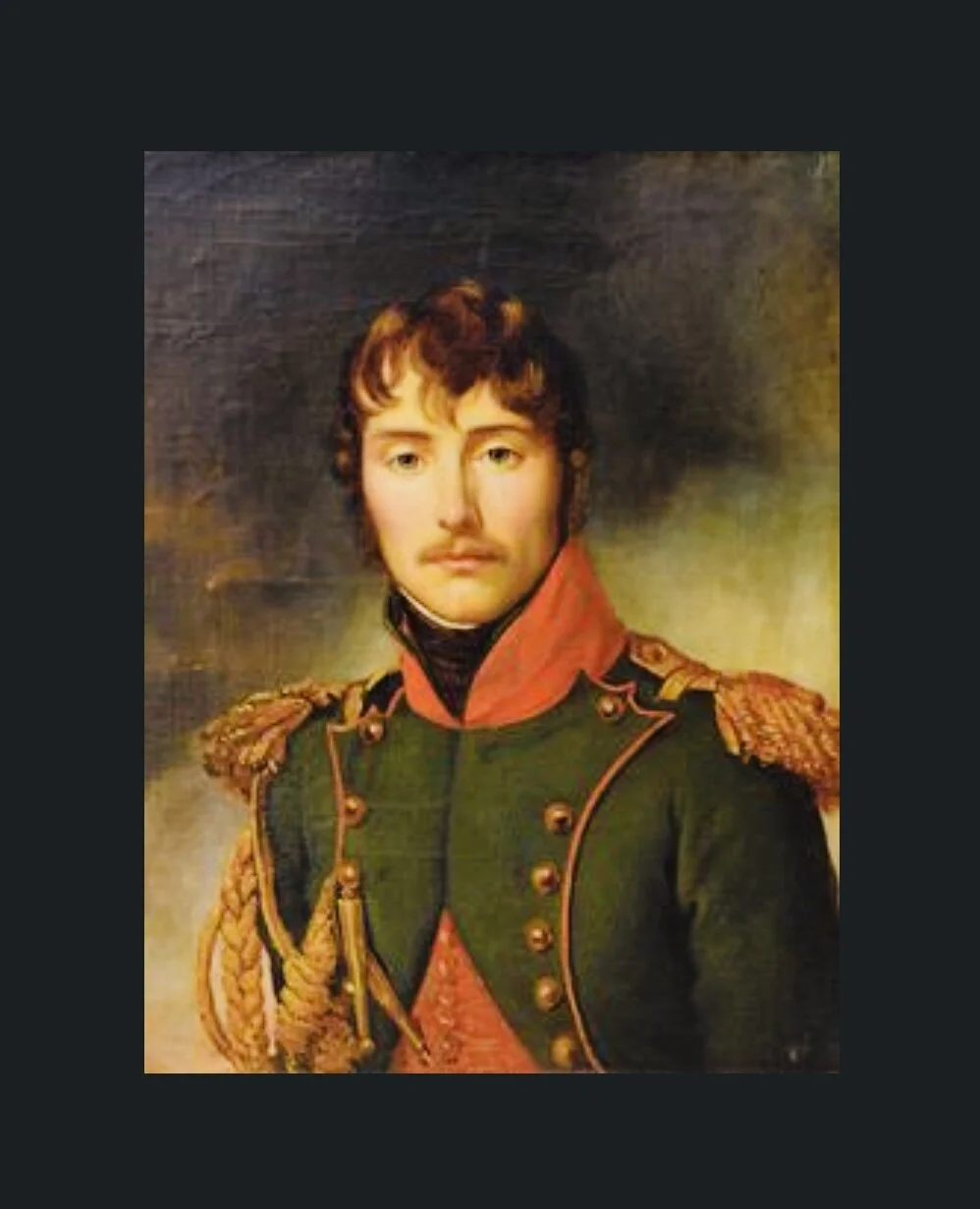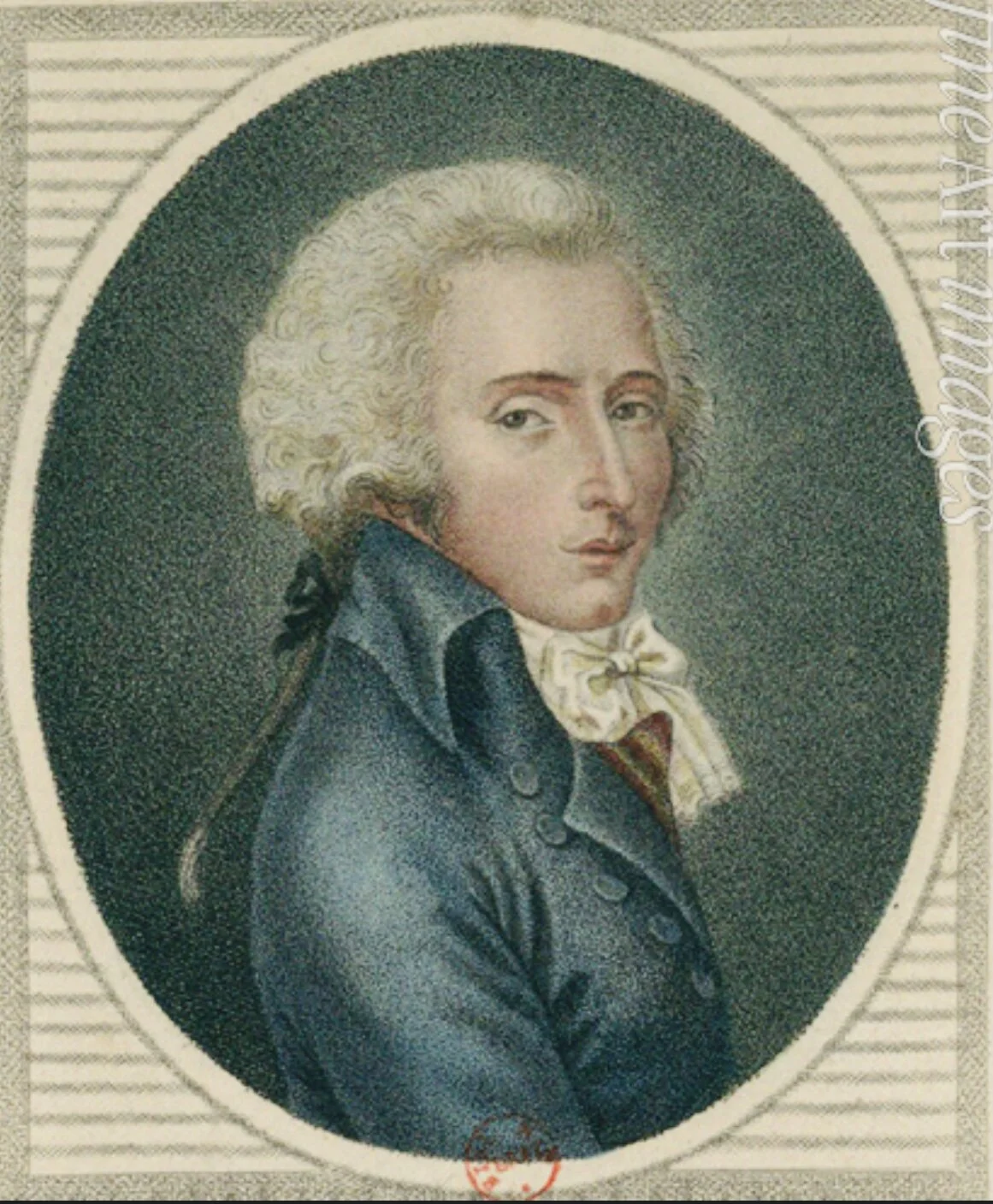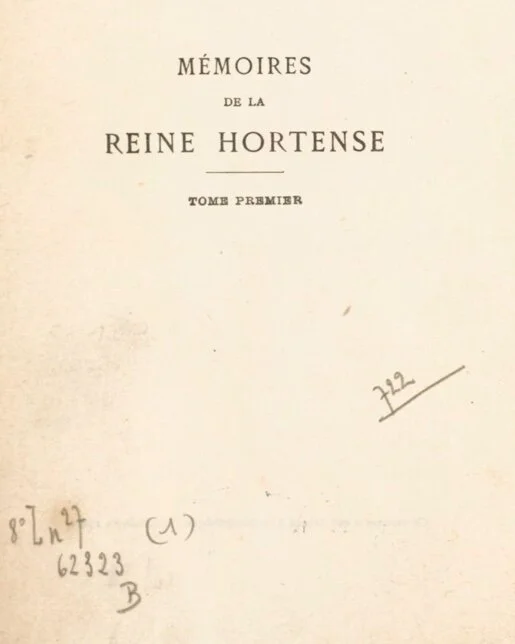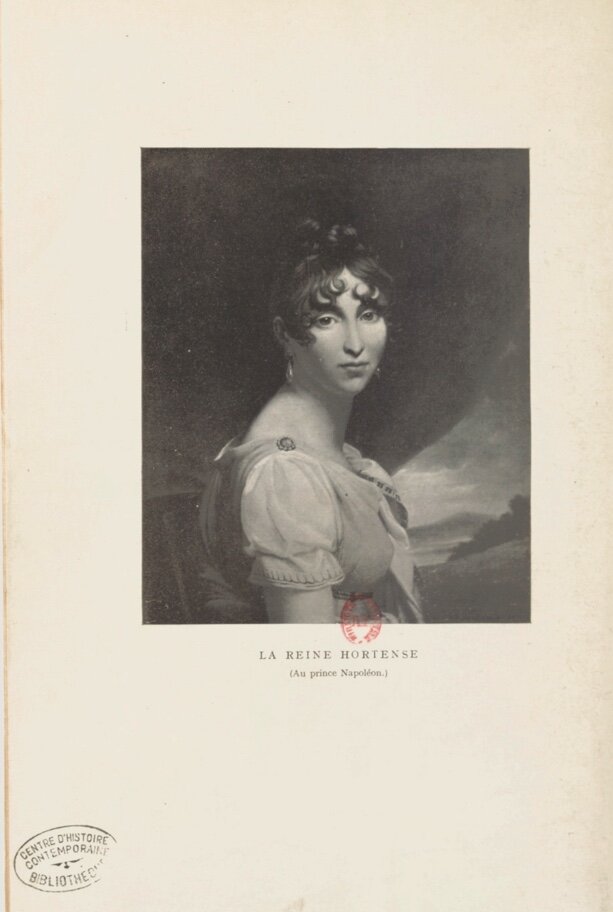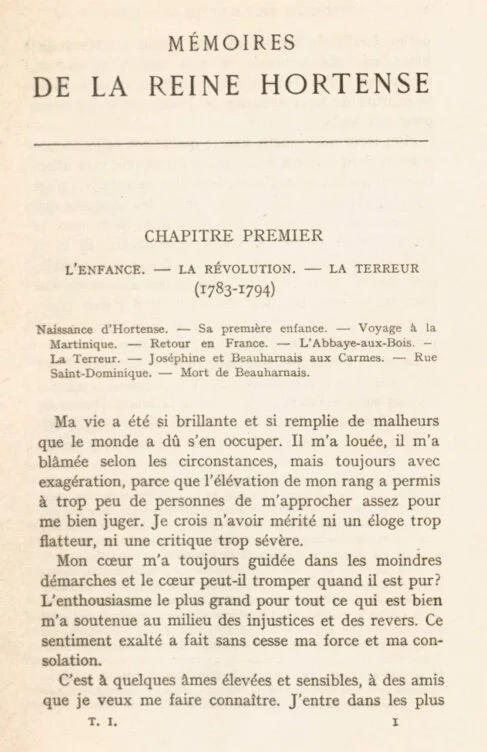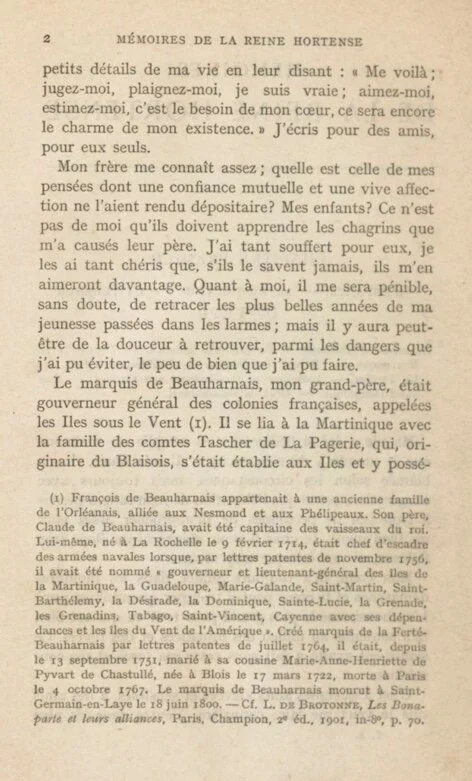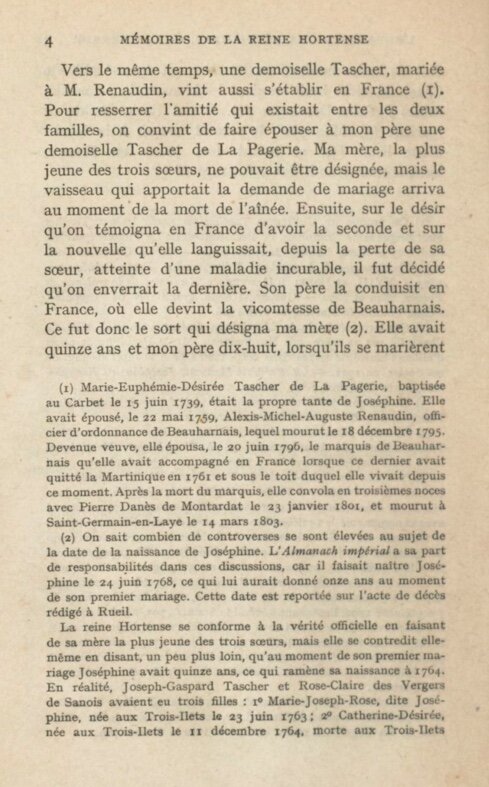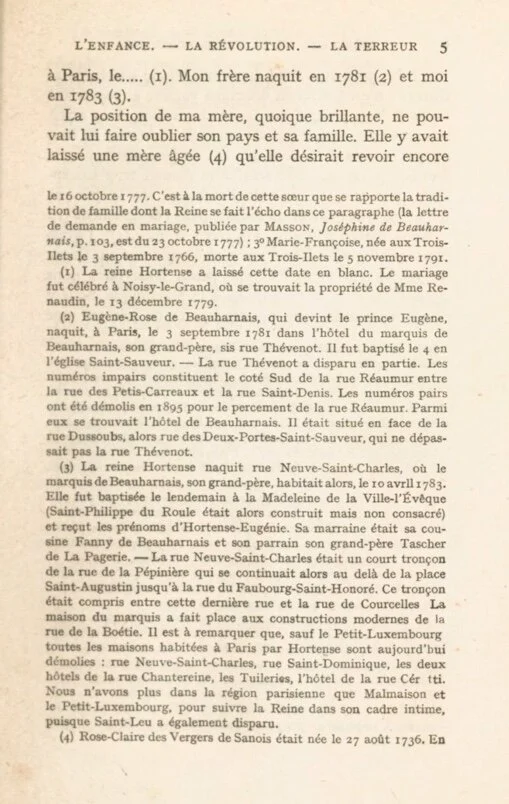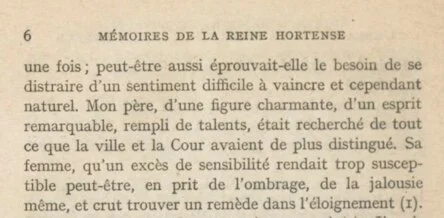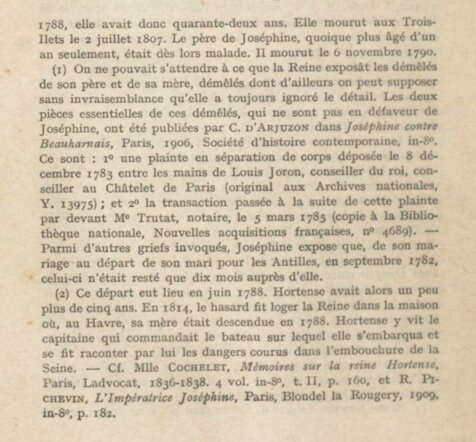It is my hope to make this eyewitness account of the life of Napoleon available to as many as possible. All say Hortense was extremely honest - except perhaps - when it came to protecting her mother Josephine and she does leave out a son she had to keep secret under the circumstances in which she lived. This text should be easy to translate from English using the google translate widget. I am also making this available in the original French.
…
The Memoirs of Queen Hortense
CHAPTER I
EARLY CHILDHOOD: THE REVOLUTION THE REIGN OF TERROR (1783-1794)
Parentage—Earliest Memories—Visit to Martinique—Mistaken Philanthropy—Flight to France—In Paris during the Revolution—The Arrest of Josephine and Beauharnais—Revolutionary Festivities An Alarming Encounter—The Fête of the Supreme Being—The Execution of Alexandre de Beauharnais.
MY life has been so varied, it has been so crowded with honors, so filled with misfortunes that it has become a subject of public interest. Some people have praised me unduly, others blamed me unjustly, few have really known me.
This was on account of my social position, which limited the number of those who could come directly in contact with me. In view of all this I feel I am entitled to demand a fair trial without favor but also without prejudice.
All my actions, great and small, have been prompted by my feelings, by my heart. If the heart be pure can one do wrong? My love for everything that is fine, that is worthwhile, has supported me in the midst of my defeats and misfortunes. This feeling has been my strength and my comfort at all times.
The following pages are not intended for the crowd. They are addressed to a few sensitive and understanding souls. It is by these I wish my conduct to be judged. To them I shall show myself in my true colors. I say to this little group of friends, "This is my real life.”
Study me, pity me, love me, admire me. I feel the need of arousing these emotions. They will form the charm of my declining years. Thus, the only audience I seek is one composed of friends. My brother Eugene knows me too well to need any explanations of my actions. What thought has traversed my mind which I have not shared with him?
Eugène
Our tender affection for one another has made me confide to him every one of my emotions. As for my children it is not from me that they should learn the unhappiness their father caused me. I have suffered so much for their sake, I have cherished them so dearly that when they know the truth they will only love me the more.
As far as I myself am concerned, while the writing of these memoirs may prove painful since they will remind me that what should have been the happiest years of my life were full of sorrows and trials, at the same time I shall find satisfaction in recalling the little good I have been able to perform.
My grandfather the Marquis de Beauharnais was Governor General of the French colonies in the West Indies. While living at Martinique he became intimate with the family of the Count Tascher de La Pagerie, who were originally from near Blois in Touraine, but who had settled in the West Indies and owned important estates there.
The Marquis de Beauharnais married Mademoiselle de Chastulle, a rich heiress owning considerable property on the island of Santo Domingo, and had two sons by his marriage. My father, the younger of the two, was born at Martinique, and while still very young returned to France with my grandfather when the latter was recalled from his post. About the same time one of the Taschers de La Pagerie married a Monsieur Renaudin and also settled in France.
In order still further to cement the bonds of friendship uniting the two families, it was decided that my father should marry a member of the same family. When the
ship bearing his request for the hand of the eldest daughter reached Martinique the young lady was dying. Later, when the family in France had asked to have the second sister sent back to Europe for my father, the fact that she had gone into a decline following her sister's death and was afflicted with an incurable disease caused the youngest girl to be selected in her place. Her father accompanied her back to France and she became the Vicomtesse de Beauharnais.
The ceremony was performed in Paris. Thus, it was chance that directed my mother's fate. Eugene was born in 1781 and I in 1783.
Although my mother's social position was brilliant it was not enough so to make her forget her family ties and the country of her birth. Across the Atlantic still lived her mother, now advanced in years, whom she wished to see at least once more.
Viscount Alexandre de Beauharnais
Then too her wish to leave France may have been stimulated by a certain feeling of resentment toward my father, a resentment easy to understand but difficult to overcome. The latter, handsome in person, highly cultured in mind, was greatly sought after by the most prominent people of both sexes at court and in society. My mother's oversensitive nature took offense at this excessive popularity. Indeed, she became actually jealous and felt that distance and separation would prove the best remedies.

